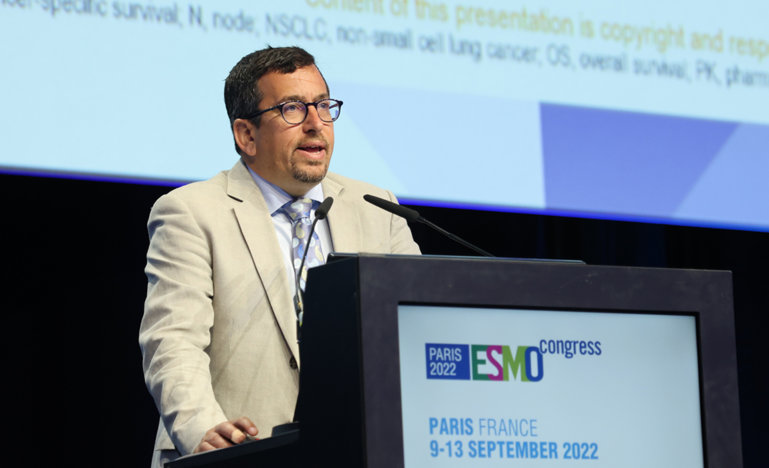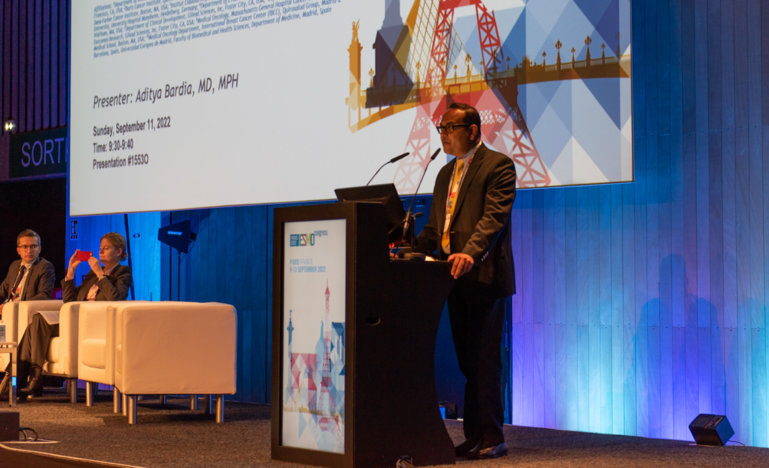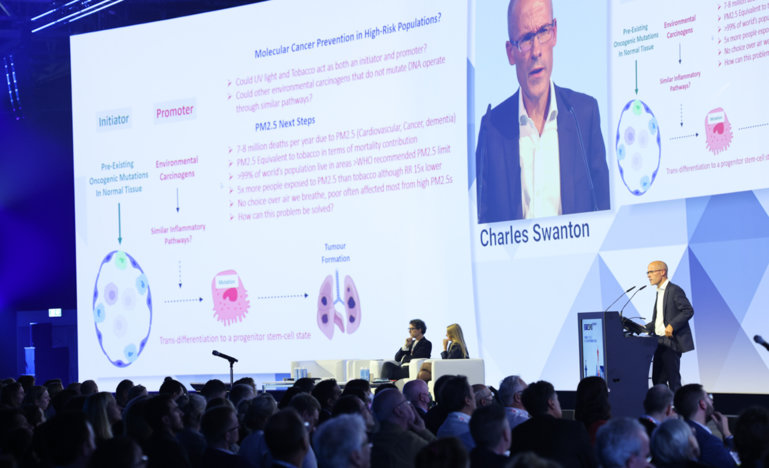ESMO Congress 2022

New FGFR inhibitors show potential for the treatment of cholangiocarcinoma
Two early studies investigate the anticancer activity of derazantinib and RLY-4008 in patients with FGFR inhibitor-naïve cholangiocarcinoma

Pathogenic variants in HRR genes can be a risk factor for anthracycline-induced cardiotoxicity
A study presented at ESMO Congress 2022 highlights the need to identify predictors of anticancer drug toxicity as more complex treatments become available

Are we getting closer to apply AI-based techniques in clinical practice?
AI technology is being tested across tumour types and with different purposes, with an emerging trend for adding value to whole slide image analyses for HER2 status

Has TIL therapy the potential to change cancer treatment?
After TILs have shown benefits in advanced melanoma, many ‘synthetic biology’ strategies can be conceived to potentially extend this clinical signal to other patient groups

Lack of clinical benefit with adjuvant canakinumab in completely resected NSCLC
Negative results from the CANOPY-A trial do not support use in the adjuvant setting

PRO data support the use of antibody–drug conjugates in metastatic breast cancer
Patient-reported data from the DESTINY-BREAST04 and TROPiCS-02 trials may help improve current knowledge of quality of life on long-term treatment

First positive phase III data for a gamma secretase inhibitor in desmoid tumours
Nirogacestat improves progression-free survival in a randomised trial performed in desmoid tumours

TILs confirm to prolong PFS compared with immunotherapy in advanced melanoma
In a head-to-head comparison to the standard of care, tumour-infiltrating lymphocytes show clinical efficacy even in patients who are refractory to anti-PD-1 treatment

A pathway from air pollution to lung cancer in non-smokers has been identified
In a study presented at ESMO Congress 2022, air pollution is shown to drive interleukin-1β release in cells with EGFR mutations to promote lung cancer development

Next-generation sequencing can identify molecular alterations in glioma: are we ready for targeted treatments?
Three studies support the use of NGS to better understand the molecular drivers of this brain tumour, but effective targeted treatments are still lacking


